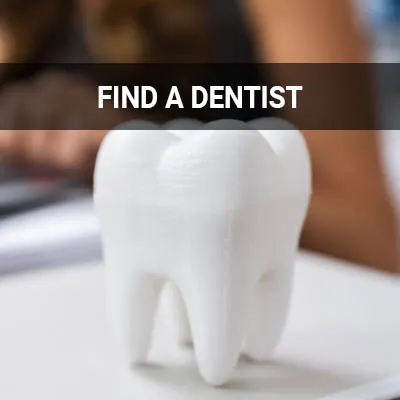Dental Procedures Federal Way, WA
For many patients, dental procedures may help restore their quality of life. Issues with teeth and gums usually do not get better over time. Dental procedures are necessary to maintain your overall health.
Dental procedures are available at Smile Center Dental Care and the surrounding area. Going without proper dental treatment may severely hamper your quality of life. Call us today at (253) 326-6230 to learn more and schedule an appointment.
Determining Candidacy
Each type of dental procedure differs from the next, along with its guidelines and candidacy. We recommend that all patients visit their dentist for a biannual routine check-up and cleaning to treat conditions as soon as they arise. The number of regular checkups will help maintain a healthy oral cavity. Routine treatments include regular and deep cleanings, fluoride treatments, bonding and tooth whitening, and sealant and crown placement.
We determine candidacy for each dental procedure depending on the patient's age, condition, and severity of their case. Dental procedures are typically performed to treat cases of moderate to severe tooth decay, tooth damage, or gum disease. These conditions can stem from a disorder such as TMJ, behavioral factors such as clenching and grinding or poor oral hygiene, and genetic factors that impact growth and development.
“We determine candidacy for each dental procedure depending on the patient’s age, condition, and severity of their case.”
Tooth Fillings
The standard protocol to treat a cavity involves removing the decayed portion of the tooth and filling the space left behind. However, according to WebMD, dentists may also utilize fillings to repair teeth that are cracked, broken, or otherwise damaged. Typically, the dentist will inject a local anesthetic into the area around the tooth and begin removing the decayed area with a drill or air abrasion instrument. The dentist will then clean the cavity of any remaining bacteria or debris in preparation for the filling. There are many different types of fillings available. Our team will help you decide the right type for you.
“… dentists may also utilize fillings to repair teeth that are cracked, broken, or otherwise damaged.”
Dental Crowns & Root Canal Treatments
Dental crowns, also known as "caps," are meant to protect and repair damaged or weak teeth. They may consist of different materials, such as metal or porcelain. They may enhance or restore a tooth's shape, size, strength, and appearance. Dental crowns may also help hold damaged teeth together and support teeth with large fillings where there is little remaining natural tooth left. Dentists may employ dental crowns to keep bridges in place, disguise misshapen or discolored teeth, or cover dental implants. Getting a dental crown requires at least two separate office visits, as the dentist will need to take X-rays, impressions, or scans to ensure the patient will have the correct fit.
Patients may need root canal treatment if the pulp of their teeth is inflamed or infected. This could be due to deep decay, excessive dental procedures, faulty crowns, or a crack or chip in the tooth. It is even possible for a tooth to have undergone trauma without any visible chips or cracks. Root canal treatment involves removing the inflamed or infected pulp, cleaning and disinfecting the inside of the tooth, and filling and sealing the remaining space. The dentist will then restore the tooth with either a crown or filling for protection. This will allow it to function like a natural tooth.
“Dental crowns, also known as “caps,” are meant to protect and repair damaged or weak teeth.”
Check out what others are saying about our dental services on Google: Dental Procedures in Federal Way, WA
Tooth Replacement & Root Scaling and Planing
Replacing missing teeth is more than just an aesthetic matter. Over time, gaps in between teeth may negatively impact a patient's speech, eating, bite, and facial appearance. From trauma, decay, or genetic conditions, there are many different reasons a patient may be missing a tooth. Fortunately, effective replacement options are available. Some of the most common include dental implants, fixed dental bridges, and removable partial dentures. Our team works closely with our patients to determine which tooth replacement option is best for them.
Untreated gum disease often precipitates tooth loss. When it comes to treating this condition, early detection is key. As long as the disease has not yet reached the structures below the gum line, a root scaling and planing (also known as a deep tooth cleaning) may be able to reverse its effects. The procedure consists of the dentist removing all the plaque and tartar both above and below the gum line, then smoothing out the patient's teeth roots to assist the gums in reattaching to the teeth.
“Over time, gaps in between teeth may negatively impact a patient’s speech, eating, bite, and facial appearance.”
Questions Answered on This Page
Q. Why might I need a dental crown?
Q. What tooth replacements options are available?
Q. How to determine candidacy for dental procedures?
Q. What are some of the reasons one might need a tooth extraction?
People Also Ask
Q. What does the dentist look for in a dental examination?
Q. What other resources can I use to find a dentist?
Q. Do I need a tooth extraction?
Q. What can a dentist do to fix my chipped tooth?
Q. What happens during a routine dental checkup?
Q. What should I know before beginning my search for a dentist?
Tooth Extractions
Tooth extractions are a common dental procedure that may be performed for a variety of reasons. Teeth may need extraction due to severe tooth decay or periodontal disease, trauma, injury, an abscess, malocclusions, tooth impaction, or compromised wisdom teeth. In most cases, the patient is given a local or general anesthetic, depending on their condition and its severity.
There are simple and surgical extractions. A simple extraction involves the removal of a visible tooth that can be loosened and easily removed using a single instrument. A surgical extraction involves extracting a tooth that lies beneath the gums or is broken at the gumline and is much more difficult to remove. Wisdom teeth are the most common type of extraction, although they can be considered simple or surgical depending on their placement in the mouth.
We will discuss after-care tips with every patient undergoing an extraction procedure. It is important to rest before and after the procedure as teeth and gums will likely be sore and tender. We will make additional recommendations on a case-by-case basis.
“Teeth may need extraction due to severe tooth decay or periodontal disease, trauma, injury, an abscess, malocclusions, tooth impaction, or compromised wisdom teeth.”
Frequently Asked Questions
Q. Do most dental procedures hurt?
A. We administer an anesthetic for most non-routine dental procedures to keep patients comfortable and pain-free during treatment. In many cases, patients may feel soreness, tenderness, and slight discomfort following a procedure due to the pressure put on the teeth and gums. However, this should dissipate within the first few hours or, at the most, a few days.
Q. How much do dental treatments cost on average?
A. Every dental procedure differs in the materials used, extent of decay, and length of time. As such, the cost of each procedure is discussed after an examination appointment in which we can properly determine what the treatment will entail. It is a good idea to also discuss your dental package with your insurance provider.
Q. How long do dental crowns last?
A. Dental crowns have become quite durable with recent advancements in dental technology. Most crowns, depending on the material used, can last from five to 15 years with adequate care and maintenance. We will discuss a crown's possible longevity with the patient during their placement appointment and provide them with healthy hygiene habits to adopt.
Q. How can I properly care for and maintain healthy teeth at home?
A. Basic brushing is not enough to maintain healthy teeth and gums, especially following any dental treatments. We recommend patients brush their teeth two to three times daily, rinse after each meal, and floss at least once a day. It is also important to avoid sticky, hard, sugary, and acidic foods and beverages that easily decay the teeth. Lastly, make sure to visit your dentist regularly for a biannual checkup and cleaning.
Q. When does pain become abnormal after an extraction or root canal treatment?
A. Extensive procedures, such as extractions, root canals, and surgeries, often have the longest recovery time. However, anti-inflammatory and pain medications should help with swelling and healing. Patients should not experience pain for longer than two weeks. Give us a call if you are experiencing pain for longer than the ascribed time for your procedure type.
Dental Terminology
Quality Dental Services Can Transform Your Smile
By visiting us as soon as possible, our team can help get you the professional treatment you need. Instead of waiting around and allowing the symptoms to get worse, we can provide you with stronger medication and treatment options instead of ineffective store-bought products.
Helpful Related Links
- American Dental Association (ADA). Glossary of Dental Clinical Terms. 2024
- American Academy of Cosmetic Dentistry® (AACD). Home Page. 2024
- WebMD. WebMD’s Oral Care Guide. 2024
About our business and website security
- Smile Center Dental Care was established in 2005.
- We accept the following payment methods: American Express, Cash, Check, Discover, MasterCard, and Visa
- We serve patients from the following counties: King County and Pierce County
- We serve patients from the following cities: Federal Way, Auburn, Kent, Des Moines, Tacoma, Fife, Milton, Edgewood, SeaTac, and Algona
- National Provider Identifier Database (1770035289). View NPI Registry Information
- Norton Safe Web. View Details
- Trend Micro Site Safety Center. View Details
Back to top of Dental Procedures











